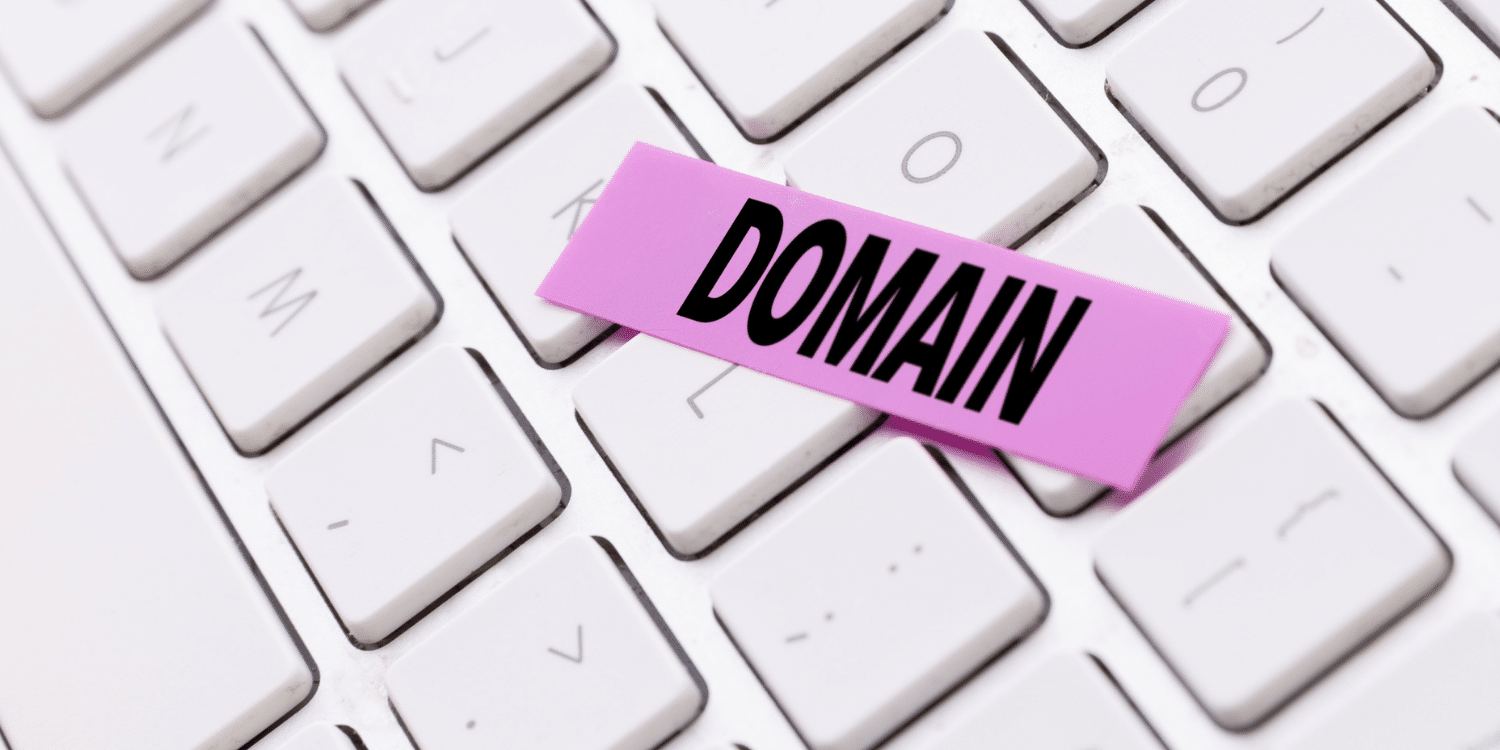In her latest interview with Thinkony, our Founder and CEO, Tatiana Bonneau, shares her thoughts on the importance of domain names for startups.
How important is a domain name, and what are the benefits of choosing the right one for one’s business?
It is as important as location is important for a physical shop if you imagine the world is a huge shopping mall (since you don’t have the limits of physical distance on the internet). Is your shop going to be in the top location — the one that was there first, and so people instinctively go there first to look for things? Is it going to be matching your brand name, or they’ll have to guess which of the many similar names is you? People are already very busy, bombarded with information all the time; the harder you make it for them to remember your name, to find you, to get back to you, the less likely they will bother. And in a way, it also shows your respect and care for your audience.

People are already very busy, bombarded with information all the time; the harder you make it for them to remember your name, to find you, to get back to you, the less likely they will bother. And in a way, it also shows your respect and care for your audience.
Tatiana Bonneau
If you think, “Oh, they surely can figure it out,” remember that’s you stealing their time. If you think, “I don’t care about copycats,” you are abusing their trust in your brand. So, I can make a long list of benefits: direct traffic, a strong brand, protection from copycats and competition, referrals, trust from clients, investors, and colleagues, to name a few. But many of those you can buy if you have the cash to throw at it, even without a good domain. But the risks you are taking by not having your exact brand match name and a good domain strategy should be considered and calculated by any serious business.
How soon should an entrepreneur register a domain name for his/her business?
As soon as you believe in your idea, you should give it a name. Sometimes, it’s even the other way around — a name can give you an idea for a business. But as soon as you have that name, get the matching domain for it. If you can’t/don’t want to get the matching domain, change the name. It’s very simple — you start building a brand, investing in it, developing and growing people’s trust in it; you are building the matching domain. Whether you own it or not. So, if you don’t own it, that’s your cash in the bin plus all the risks I mentioned above. It’s simply not a smart way to run a business.
As soon as you believe in your idea you should give it a name. Sometimes it’s even the other way around — a name can give you an idea for a business. But as soon as you have that name, get the matching domain for it. If you can’t/don’t want to get the matching domain, change the name.
Tatiana Bonneau
Certain trends must have shaped the domain name industry in the last decade. Can you share some of them with us?
We at MarkUpgrade will soon share a report on that, but to shortly list what we found: brands are simplifying their domains — shorter, matching names, abbreviations, etc. Many of the entrepreneurs of this decade come from tech startups, so when they launch their own business, they are already very clued up on the importance of a good brand name and a matching domain. This is an ongoing trend and will surely make communication between domain owners and brands easier. Sadly, I rarely see the marketing, branding, and naming agencies catching up on that (often even giving advice against the importance of domains), so they might just fall out of that process if they don’t adapt.
A lot of new extensions came about this decade, with different levels of success. Factually, .com is still king, curious to see how that develops in the coming decade. Issues of privacy, phishing, online scams, etc., made a lot of business owners realize they don’t just need a domain; they need a domain strategy to protect their brand online and their customers. And in terms of naming, I think largely due to the fact there is so much on the market now — in any industry — brands try to be more personal from the outset. They want to sound friendly and familiar. So, made-up funny words, personal names, and common words (not always in their literal meaning) were popular.

According to the Verisign Domain Name Industry Brief (Q3 2019), 144.0 million out of the total 359.8 million registered domains were .com domains. In view of this, how long do you think the .com domain will maintain its leadership before other newer TLDs catch up with it?
The .com has been challenged many times already. It was going to be killed by new extensions, apps, platforms, etc.; none of that has happened, and it’s been 35 years. If you think about it, there are not many things on the internet that last that long; it moves pretty fast. It goes to the same logic as when picking a name: people don’t have time. Every time you have to make them think more, harder, longer about something — that’s cash. I’m very open to any developments in the future, but .com is a brand in itself — it communicates trust, authority, credibility, built by millions of companies over 35 years. Would be curious to see who/what can beat that.

Still on the Verisign Brief, the .tk domain, a free top-level domain, was both the 2nd overall most registered domain after the .com domain and the most registered domain among the top ten country-code top-level domains (ccTLDs). Would you recommend the free .tk domain over its paid counterparts?
First, what does free mean? Nothing is free 🙂 So I guess it’s free for one year? How do they operate if it’s free? It’s a country domain extension, which often (especially with dependent territories) can get messy (see the .eu with Brexit example) in terms of regulation. I would recommend anyone doing their own thorough research before investing in anything and aligning their brand with it.
People have mixed feelings and experiences about some of the top domain name registrars out there. What should business owners look for when deciding on the registrar to patronize?
It’s relatively easy to conduct research, look for reviews, and ask colleagues and business partners for their experiences. The choice would ultimately depend on what is important for a business — price, customer support, additional services, etc.

How do you think entrepreneurs can avoid losing their domain names to domain squatters?
Nowadays, what many refer to as squatters are domain investors — people who put their hard-earned cash into domains that they deemed valuable at some point and kept those as an investment, paying renewal fees, sometimes for decades, taking the risk those investments may never pay off. That’s a business just like any other, and there is nothing ignoble about it.
I’m not at all a fan of entrepreneurs who come across all well-educated and mannered into a discussion, and as soon as they don’t hear the price they wanted to pay for the domain, they start screaming: “Squatters!” I mean, there’s someone squatting my Bugatti and $10 Million mansions, but hey. The practice of squatting is when someone maliciously registers a domain trying to profit from a brand; the brand is targeted specifically. And those individuals are targeted and despised by the domain industry more than any other (which sadly is little known in entrepreneurial circles). So, now we’ve cleared what squatters are.
To keep your brand name clean and protected, my advice would be to make sure you have all your domains safe, registered in your name (not your developer, web designer, friend, etc.), often change the passwords to your account with your registrar, make sure your contact email and payment details are always up to date and your renewals are set to automatic. Register variations of your brand name with typos in popular extensions. Generally, don’t take domain names lightly; they are an important and intrinsic part of your brand.
You seem to recommend Exact Match Domains (EMDs), but Google tends to prevent “poor quality content” sites that have words that match search terms in their domain names from ranking well. How do we balance the equation?
Google is pay-to-play, and I think we should stop kidding ourselves it’s anything else. You pay, you show on top; you don’t pay, you don’t. That’s all there is to it. I would not advise anyone building their brand around Google or any third party come to that. You choose your name, your domain, and build your product — all for your clients. Any third parties are great for getting the word out and, depending on your budget and product, should be used as a mix to drive traffic. The focus should always be your brand, what it does for your audience, how you communicate that loud and clear across all channels, and how you make it so good people don’t need to go via third parties to come to you.
When I want to get a sports-related product, I type Nike.com. When I want to recommend a sports-related product to friends, I tell them to type the same. I don’t go searching for anything anywhere; they don’t either. That’s cash saved for Nike.
Google is pay-to-play and I think we should stop kidding ourselves it’s anything else. You pay, you show on top; you don’t pay, you don’t. That’s all there is to it. I would not advise anyone building their brand around Google or any third party come to that. You choose your name, your domain, and build your product — all for your clients.
Tatiana Bonneau
What major mistakes do you think business owners often make as far as choosing domain names for their businesses is concerned?
I can make this one short: they don’t take it seriously. To use the example above, what is Nike.com worth for Nike? This is the importance a domain name has, and just because you are starting out now doesn’t mean you should take that lightly — very much the contrary.
MarkUpgrade is a company that focuses on domain acquisitions and domain name consulting services, what are your goals for the domain name industry in 2020 and beyond?
To have meaningful conversations with entrepreneurs about their brands online. I love what I do, and so does everyone on our team. We have learned and changed a lot over the past year and will continue to do so looking forward. We are working on a lot of content as there are many misconceptions when it comes to domains in the entrepreneurial world, will be good to see those gone. Conversations and connections are the most important; we all learn from each other by communicating, and that’s how we develop and evolve. So, my goal and our goal collectively is that — to have more of those 🙂
Can you predict some of the trends that you think will shape the domain name industry in the next 10 years?
Good names are limited, so I expect their value to rise. Businesses will likely continue to simplify and shorten their names. Voice is already huge, so this will have an effect on what domains are valuable. With the popularity of different languages and the fact there are only so many English words with good meaning and many more startups and global entrepreneurs — coming from different parts of the world and so carrying their own story to communicate, I think naming will follow and so will domains; we will see a lot more names coming from different languages which are super exciting and curious.
Good names are limited, so I expect their value to rise. Businesses will likely continue to simplify and shorten their names. Voice is already huge, so this will have an effect on what domains are valuable.
Tatiana Bonneau
What practical tips or advice do you have for entrepreneurs who are looking for the most effective ways of choosing the right domain name for their business?
Think of it as a project of its own; have meetings with experts, with people in your team; discuss options, pros, and cons; calculate risks and benefits — immediate and future — of all the options on the table. Ask independent parties to judge your choice, ideally representative of your target audience. Do they like the name? Do they remember it? Can they type it as they hear it? Can they spell it? If you tell them your brand name and ask them to guess your domain, does it match your choice?
It was awesome getting your expert views on the trends shaping the domain name industry, Tatiana!
I enjoyed answering your questions, too. Thank you!
We hope the above information will help you in making informed decisions about your brand. What can we do to empower your brand? Get in touch, we are always happy to chat.
Connect with Tatiana on Twitter and LinkedIn.
Originally published at Thinkony.com on January 1, 2020.

Previous Next